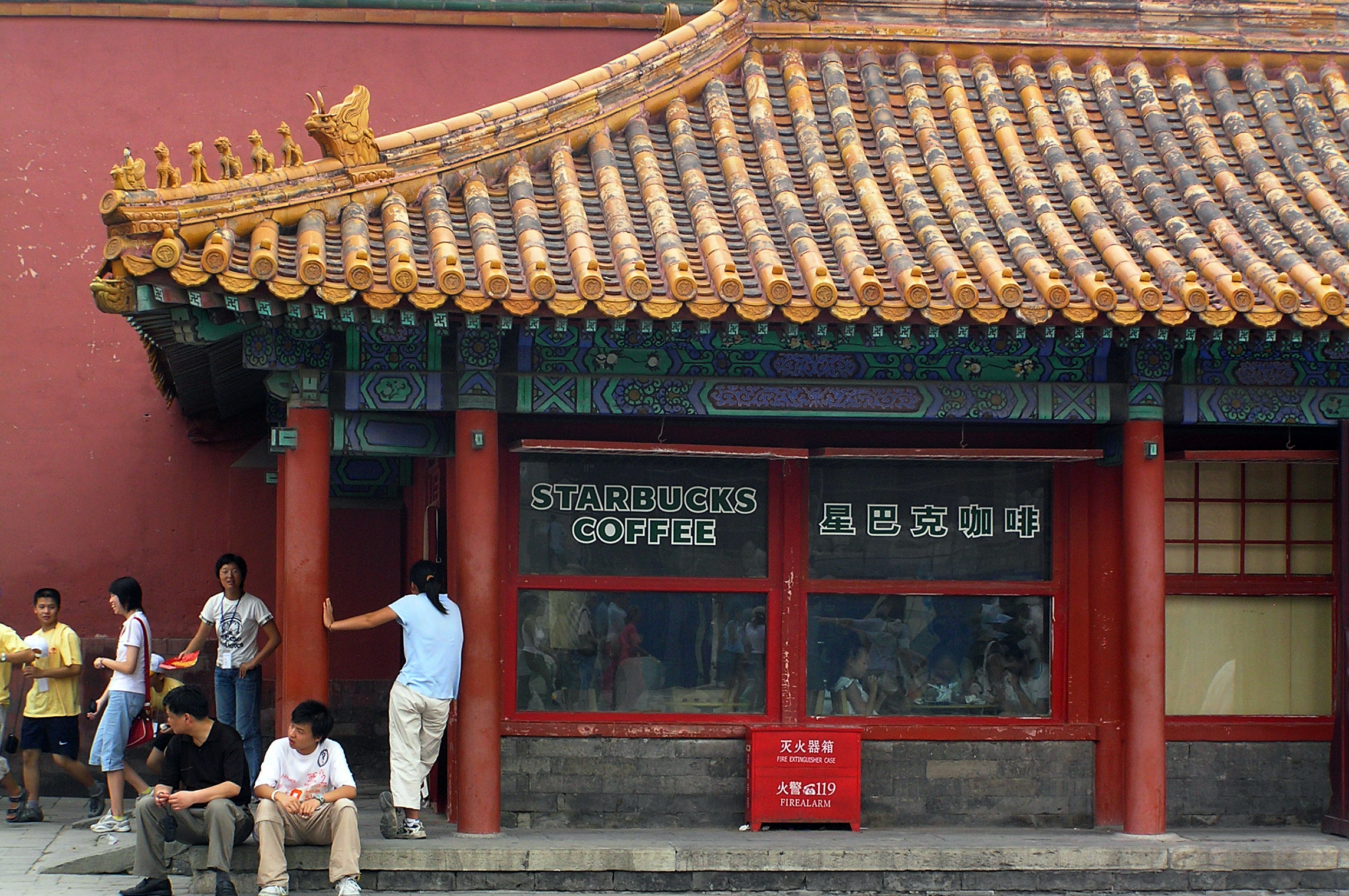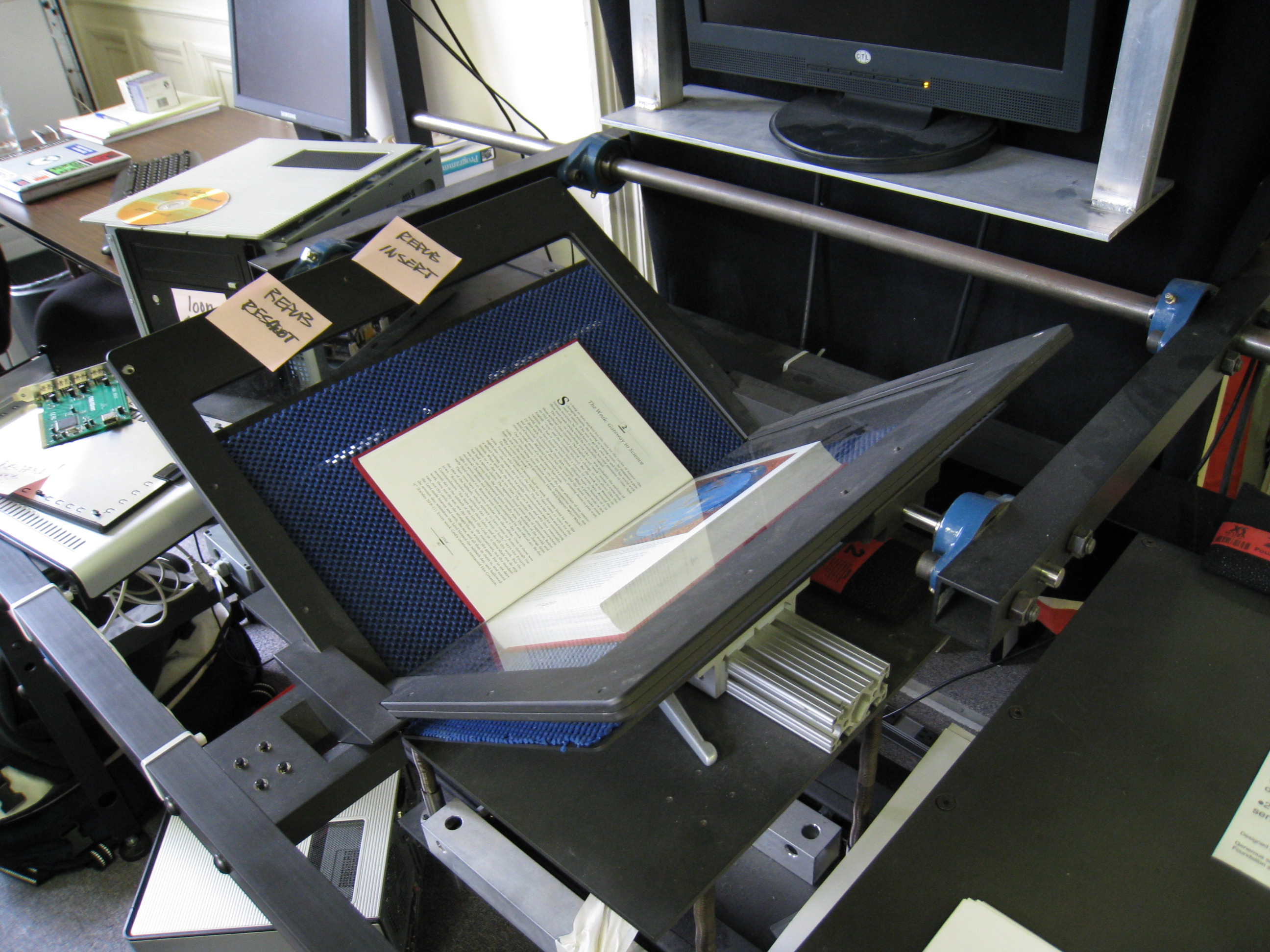|
Glocalization
Glocalization or glocalisation (a portmanteau of ''globalization'' and '' localism'') is the "simultaneous occurrence of both universalizing and particularizing tendencies in contemporary social, political, and economic systems". The concept comes from the Japanese word ''dochakuka'' and "represents a challenge to simplistic conceptions of globalization processes as linear expansions of territorial scales. Glocalization indicates that the growing importance of continental and global levels is occurring together with the increasing salience of local and regional levels." The adjective glocal means "reflecting or characterized by both local and global considerations". The term "glocal management" in a sense of "think globally, act locally" is used in the business strategies of companies, in particular by Japanese companies that are expanding overseas. Variety of uses *Individuals, households and organizations maintaining interpersonal social networks that combine extensive local and ... [...More Info...] [...Related Items...] OR: [Wikipedia] [Google] [Baidu] |
Barry Wellman
Barry Wellman (30 September 1942 – 9 July 2024) was an American-Canadian sociologist and was the co-director of the Toronto-based international NetLab Network. His areas of research were community sociology, the Internet, human–computer interaction and social structure, as manifested in social networks in communities and organizations. His overarching interest was in the paradigm shift from group-centered relations to ''networked individualism''. He wrote and co-authored more than 300 articles, chapters, reports and books. Wellman was a professor at the Department of Sociology, University of Toronto, for 46 years, from 1967 to 2013, including a five-year stint as the S. D. Clark Professor. Among the theories Wellman helped develop were: "network of networks" and "the network city" (both with Paul Craven), "the community question", "computer networks as social networks", "connected lives" and the "immanent Internet" (both with Bernie Hogan), " media-multiplexity" (with Car ... [...More Info...] [...Related Items...] OR: [Wikipedia] [Google] [Baidu] |
Keith Hampton
Keith N. Hampton (born 1973) is professor of media and information at Michigan State University. His research interests focus on the relationship between information and communication technology, such as the Internet, social networks, and community democratic engagement, social isolation, and participation in the urban environment. Hampton received his PhD from the Department of Sociology, University of Toronto, and has been a faculty member at MIT, the Annenberg School for Communication at the University of Pennsylvania and Rutgers University. Recent research explores such subjects as social interaction in public spaces, the role of technology in social isolation, and the role of the Internet in neighborhood interactions and relationships. Career Hampton received his B.A. (Bachelor's) in sociology, with honours, from the University of Calgary. He completed his graduate work at the University of Toronto, where he trained with Barry Wellman. He received an M.A. in sociology in 1 ... [...More Info...] [...Related Items...] OR: [Wikipedia] [Google] [Baidu] |
Globalization
Globalization is the process of increasing interdependence and integration among the economies, markets, societies, and cultures of different countries worldwide. This is made possible by the reduction of barriers to international trade, the liberalization of capital movements, the development of transportation, and the advancement of information and communication technologies. The term ''globalization'' first appeared in the early 20th century (supplanting an earlier French term ''mondialisation''). It developed its current meaning sometime in the second half of the 20th century, and came into popular use in the 1990s to describe the unprecedented international connectivity of the Post–Cold War era, post–Cold War world. The origins of globalization can be traced back to the 18th and 19th centuries, driven by advances in transportation and communication technologies. These developments increased global interactions, fostering the growth of international trade and the exc ... [...More Info...] [...Related Items...] OR: [Wikipedia] [Google] [Baidu] |
Roland Robertson
Roland Robertson (August 7, 1938 - April 29, 2022) was a sociologist and theorist of globalization who lectured at the University of Aberdeen in Scotland. Formerly, he was a professor of sociology at the University of Pittsburgh, and in 1988 he was the President of the Association for the Sociology of Religion. Biography Robertson was born near Norwich, Great Britain in 1938. He received his undergraduate degree at the University of Southampton and taught at the University of Essex, the University of York, the University of Pittsburgh, and the University of Aberdeen. Robertson had three sons with Jennifer Robertson before getting divorced in 1981. Robertson married long time partner Judith Velody in 2018. Career Robertson's theories have focused significantly on a more phenomenological and psycho-social approach than that of more materialist oriented theorists such as Immanuel Wallerstein or Fredric Jameson. For Robertson, the most interesting aspect of the modern (or post ... [...More Info...] [...Related Items...] OR: [Wikipedia] [Google] [Baidu] |
Islam
Islam is an Abrahamic religions, Abrahamic monotheistic religion based on the Quran, and the teachings of Muhammad. Adherents of Islam are called Muslims, who are estimated to number Islam by country, 2 billion worldwide and are the world's Major religious groups, second-largest religious population after Christians. Muslims believe that Islam is the complete and universal version of a Fitra, primordial faith that was revealed many times through earlier Prophets and messengers in Islam, prophets and messengers, including Adam in Islam, Adam, Noah in Islam, Noah, Abraham in Islam, Abraham, Moses in Islam, Moses, and Jesus in Islam, Jesus. Muslims consider the Quran to be the verbatim word of God in Islam, God and the unaltered, final revelation. Alongside the Quran, Muslims also believe in previous Islamic holy books, revelations, such as the Torah in Islam, Tawrat (the Torah), the Zabur (Psalms), and the Gospel in Islam, Injil (Gospel). They believe that Muhammad in Islam ... [...More Info...] [...Related Items...] OR: [Wikipedia] [Google] [Baidu] |
Glock
Glock (; stylized as GLOCK) is a brand of polymer- framed, short-recoil-operated, striker-fired, locked-breech semi-automatic pistols designed and produced by Austrian manufacturer Glock Ges.m.b.H. The firearm entered Austrian military and police service in 1982 after becoming the top performer in reliability and safety tests. Glock pistols have become the company's most profitable line of products, and have been supplied to national armed forces, security agencies, and police forces in at least 48 countries. Glocks are also popular among civilians for recreational shooting, competition shooting, and self-defense. History The company's founder and head engineer, Gaston Glock (1929–2023), had no experience with firearms design or manufacture at the time his first pistol, the Glock17, was being prototyped. Glock had extensive experience in advanced synthetic polymers, which was instrumental in the company's design of the first commercially successful line of pistols ... [...More Info...] [...Related Items...] OR: [Wikipedia] [Google] [Baidu] |
Cultural Heritage
Cultural heritage is the heritage of tangible and intangible heritage assets of a group or society that is inherited from past generations. Not all heritages of past generations are "heritage"; rather, heritage is a product of selection by society. Cultural heritage includes cultural property, tangible culture (such as buildings, monuments, landscapes, archive materials, books, works of art, and artifacts), intangible heritage, intangible culture (such as folklore, traditions, language, and knowledge), and natural heritage (including culturally significant landscapes, and biodiversity).Ann Marie Sullivan, Cultural Heritage & New Media: A Future for the Past, 15 J. MARSHALL REV. INTELL. PROP. L. 604 (2016) https://repository.jmls.edu/cgi/viewcontent.cgi?article=1392&context=ripl The term is often used in connection with issues relating to the protection of Indigenous intellectual property. The deliberate action of keeping cultural heritage from the present for the future is known ... [...More Info...] [...Related Items...] OR: [Wikipedia] [Google] [Baidu] |
Religion
Religion is a range of social system, social-cultural systems, including designated religious behaviour, behaviors and practices, morals, beliefs, worldviews, religious text, texts, sanctified places, prophecies, ethics in religion, ethics, or religious organization, organizations, that generally relate humanity to supernatural, transcendence (religion), transcendental, and spirituality, spiritual elements—although there is no scholarly consensus over what precisely constitutes a religion. It is an essentially contested concept. Different religions may or may not contain various elements ranging from the divine, sacredness, faith,Tillich, P. (1957) ''Dynamics of faith''. Harper Perennial; (p. 1). and a supernatural being or beings. The origin of religious belief is an open question, with possible explanations including awareness of individual death, a sense of community, and dreams. Religions have sacred histories, narratives, and mythologies, preserved in oral traditions, sac ... [...More Info...] [...Related Items...] OR: [Wikipedia] [Google] [Baidu] |
Portmanteau
In linguistics, a blend—also known as a blend word, lexical blend, or portmanteau—is a word formed by combining the meanings, and parts of the sounds, of two or more words together.Garner's Modern American Usage p. 644. English examples include '' smog'', coined by blending ''smoke'' and ''fog'', and '''', from ''motor'' ('' motorist'') and ''hotel''. A blend is similar to a [...More Info...] [...Related Items...] OR: [Wikipedia] [Google] [Baidu] |
Digitization
Digitization is the process of converting information into a digital (i.e. computer-readable) format.Collins Dictionary. (n.d.). Definition of 'digitize'. Retrieved December 15, 2021, from https://www.collinsdictionary.com/dictionary/english/digitize The result is the representation of an object, image, sound, document, or signal (usually an analog signal) obtained by generating a series of numbers that describe a discrete set of points or samples. The result is called ''digital representation'' or, more specifically, a ''digital image'', for the object, and ''digital form'', for the signal. In modern practice, the digitized data is in the form of binary numbers, which facilitates processing by digital computers and other operations, but digitizing simply means "the conversion of analog source material into a numerical format"; the decimal or any other number system can be used instead. Digitization is of crucial importance to data processing, storage, and transmission, bec ... [...More Info...] [...Related Items...] OR: [Wikipedia] [Google] [Baidu] |
Morocco
Morocco, officially the Kingdom of Morocco, is a country in the Maghreb region of North Africa. It has coastlines on the Mediterranean Sea to the north and the Atlantic Ocean to the west, and has land borders with Algeria to Algeria–Morocco border, the east, and the disputed territory of Western Sahara to Morocco–Western Sahara border, the south. Morocco also claims the Spain, Spanish Enclave and exclave, exclaves of Ceuta, Melilla and Peñón de Vélez de la Gomera, and several small Plazas de soberanía, Spanish-controlled islands off its coast. It has a population of approximately 37 million. Islam is both the official and predominant religion, while Arabic and Berber are the official languages. Additionally, French and the Moroccan dialect of Arabic are widely spoken. The culture of Morocco is a mix of Arab culture, Arab, Berbers, Berber, Culture of Africa, African and Culture of Europe, European cultures. Its capital is Rabat, while its largest city is Casablanca. Th ... [...More Info...] [...Related Items...] OR: [Wikipedia] [Google] [Baidu] |
Christianity
Christianity is an Abrahamic monotheistic religion, which states that Jesus in Christianity, Jesus is the Son of God (Christianity), Son of God and Resurrection of Jesus, rose from the dead after his Crucifixion of Jesus, crucifixion, whose coming as the Messiah#Christianity, messiah (Christ (title), Christ) was Old Testament messianic prophecies quoted in the New Testament, prophesied in the Old Testament and chronicled in the New Testament. It is the Major religious groups, world's largest and most widespread religion with over 2.3 billion followers, comprising around 28.8% of the world population. Its adherents, known as Christians, are estimated to make up a majority of the population in Christianity by country, 157 countries and territories. Christianity remains Christian culture, culturally diverse in its Western Christianity, Western and Eastern Christianity, Eastern branches, and doctrinally diverse concerning Justification (theology), justification and the natur ... [...More Info...] [...Related Items...] OR: [Wikipedia] [Google] [Baidu] |







